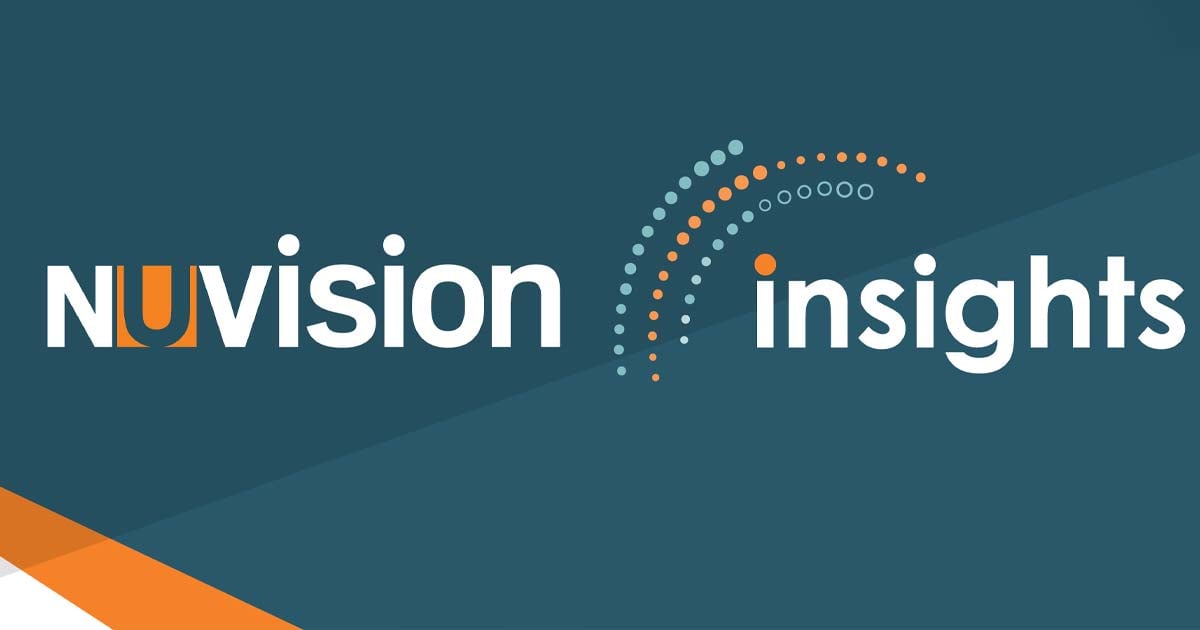Fighting Back Against Fraud: A Recap of Our Latest Nuvision Insights Webinar

Scams are everywhere—and they’re getting harder to spot. Last year alone, consumers lost over $12.5 billion to fraud, a 25% jump from the year before. With deepfake technology, imposter scams, and social engineering tactics now part of everyday life, it’s no longer just about being careful—it’s about being informed and prepared.
That’s why we hosted our most recent Nuvision Insights Webinar: Fraud Awareness and Protection. We brought together key leaders from our team—CEO Roger Ballard, Fraud Expert Amy Marsalek, and VP of Digital Michael Hayden—for an in-depth discussion on how members can stay protected and what Nuvision is doing behind the scenes to help.
Here’s What We Covered—and Why It Matters
Fraud isn’t just a hassle—it’s a serious threat to your finances and peace of mind. “We really want to partner with you, to continue to work, to educate you and to give you tips about how you can protect yourself and your money,” Nuvision CEO, Roger Ballard told attendees.
That message carried through the entire event: stay aware, stay informed, and take simple steps that make a real difference in protecting you and your money.
The Scams You Should Be Watching For
Fraud is constantly evolving. Amy Marsalek got right to the point: “(Fraud) is one of my most favorite unfavorite topics, but arming our members with information is the best way to protect them and their assets.”
Here are some of the key threats she broke down:
Imposter Scams
These look like emails, texts, or calls from a trusted source—but they’re fake. “Just because a call or an email appears to be from a trusted source... doesn’t mean that this is a valid contact.”
Her advice: question everything. “If someone on the phone is asking you to do something... disconnect the call, contact that company directly. No one, not even your financial institution, should ever ask you to move money to protect it.”
Authorized Push Payment (APP) Scams
This one’s dangerous because the victim sends the money voluntarily—after being tricked. “They might pose as a romantic partner, a tech support agent, or even your own grandchild.” The scam always works the same way: create urgency and pressure you to act fast.
Investment and Romance Scams
“If it promises guaranteed high returns or 10x gains in 90 days, for example, it’s probably a scam.” Romance scams are also evolving into what’s now called ‘pig butchering’— where scammers build trust over time, then convince people to “invest” in fake platforms.
One of Amy’s tips: “Use reverse image search... I was approached online by someone that looked suspiciously familiar. It was an actor.”
Check Washing and Mail Theft
Mail theft is still a popular form of fraud, especially around tax season or holidays. Amy warned not to use the blue USPS drop boxes. “Drop your mail inside the post office,” she said. Also, use gel pens like the UniBall Signo 207, which are harder to alter.
Deepfake Scams
AI technology continues to advance, and is now being used to mimic voices and faces—sometimes even people you know. “If it gives you pause even for a moment, stop and ask some questions,” noted Amy. Watch for red flags like robotic voices or unusual eye blinking that doesn’t look right.
What Nuvision Is Doing About It
Michael Hayden, VP of Digital, provided insight to what we’re doing behind the scenes to stay ahead of fraudsters. The biggest update? A major upgrade to our digital authentication process, launching this summer.
“Right now we are looking to enhance member security,” he said. The update will let you register trusted devices, approve transactions with real-time push notifications, and stop suspicious login attempts on the spot.
If someone tries to access your account from a device that isn’t yours? “You’re gonna get a notification that says, ‘Is this you?’... and you’ll be able to reply, ‘No, this is fraud,’ and we’ll block all future attempts.”
Even better: if that same device shows up trying to access someone else’s account, “You’ve prevented it by notifying us… and you’re also allowing us to prevent those attempts for other members.”
Here Are Some Tips You Can Use Right Now to Reduce Fraud
- Avoid reusing passwords. Use a unique password for your Nuvision account—don’t repeat ones you use elsewhere.
- Set up account alerts. Get notified about any unusual activity so you can act fast if something looks off.
- Use card controls in the app. Turn your card off instantly if something doesn’t seem right.
- Keep your login private. Even if it feels convenient, never share your login—doing so puts your account at risk.
- Watch out at gas stations. Use the pump closest to the store, check the card reader for tampering, and use contactless pay when you can.
Why We Held This Webinar
The threats are real—and not going away. You deserve to know what you’re up against and how to stay protected.
“Arming our members with information is the best way to protect them and to protect their assets,” Amy said.
Want to Watch the Full Webinar?
We’ve made the full webinar recording available, along with helpful downloadable fraud prevention resources on our website at: https://nuvisionfederal.com/nuvision-insights-june-2025




